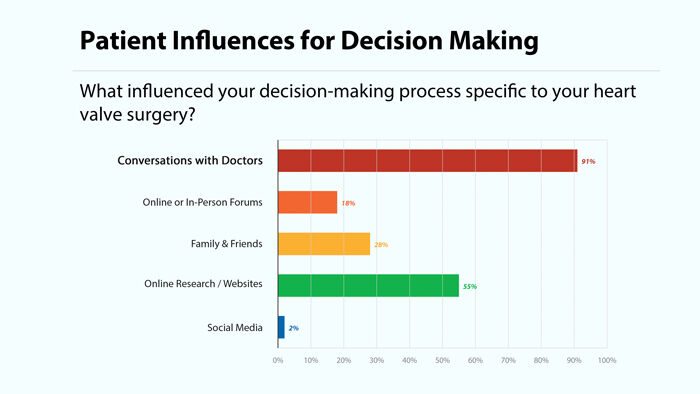New ACC/AHA Heart Valve Guidelines Reinforce Importance of Shared Decision Making Among Patients & Their Doctors
Written By: Adam Pick, Patient Advocate, Author & Website Founder
Published: February 19, 2021
Since 1998, the American College of Cardiology (ACC) and the American Heart Association (AHA) have issued guidelines for the recommended treatment of valvular heart disease. Since then, the ACC/AHA Heart Valve Guidelines have been revised several times as new scientific data and new treatment options emerged.

Announced in December, the new ACC/AHA Heart Valve Guidelines emphasize the importance of shared decision making among patients and their care providers.
For example… Specific to aortic stenosis, the new ACC/AHA Heart Valve Guidelines suggest that surgical risk stratification is no longer a factor for therapy selection and that shared-decision making between the patient and the heart team, along with the patient’s age, anatomy and other medical conditions, should drive treatment decisions based on the lifetime risks and benefits of:
- Mechanical versus tissue valve replacements; and
- Surgical aortic valve replacement (SAVR) and transcatheter aortic valve replacement (TAVR).
ACC/AHA Guidelines Support Patient Survey Results
Interestingly, shared decision making was highlighted in a recent survey of more than 3,000 patients within the HeartValveSurgery.com community; in the survey, the doctor/patient dialogue was the highest reported factor in determining treatment decisions as more than 90 percent of respondents who identified as a heart valve patient responded that they were influenced by conversations with their doctors.

As we have learned together, heart valve patients want an active voice in their care. Patients want to understand their treatment options – the opportunities, the risks and the trade-offs. In addition, patients want to have meaningful conversations with their doctors about the short- and long-term advantages of one therapy compared to another.
Why Is This Important For Patients?
Patients should feel empowered by the focus on shared-decision making within the updated ACC/AHA Heart Valve Guidelines. Now, more than ever, patients are encouraged to play an active role in the treatment of heart valve disease throughout their lifetime.
If you are a patient… Take the time to research your specific heart valve disease. Take the time to understand your treatment options. And, please take the time to discuss your care with your heart team.
Related Links:
- Learn About the “Active Living Patient Awareness Campaign”
- What Should Patients Know About TAVR?
- Find Doctors That Specialize in TAVR
Keep on tickin!
Adam





